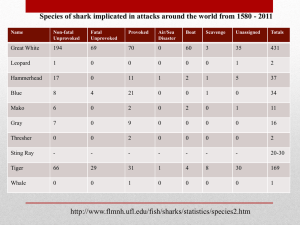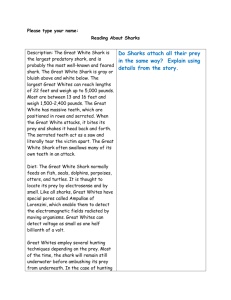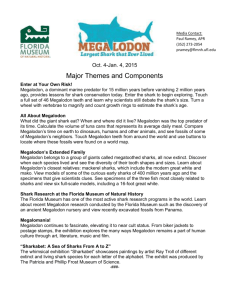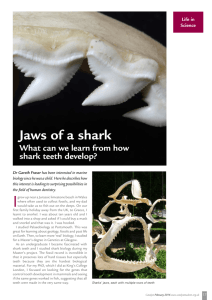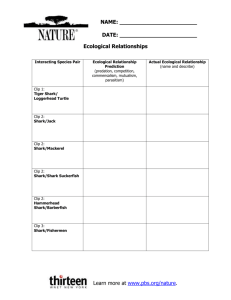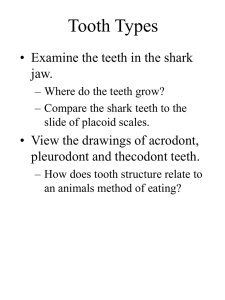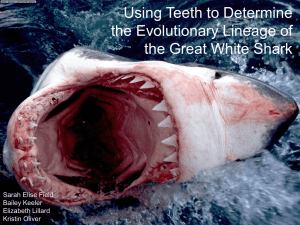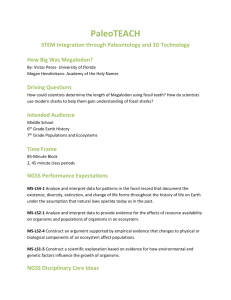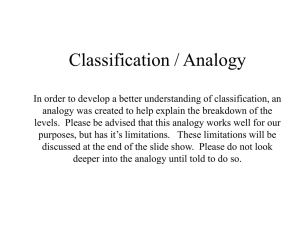Tongue Stones - Mr Ideahamster
advertisement
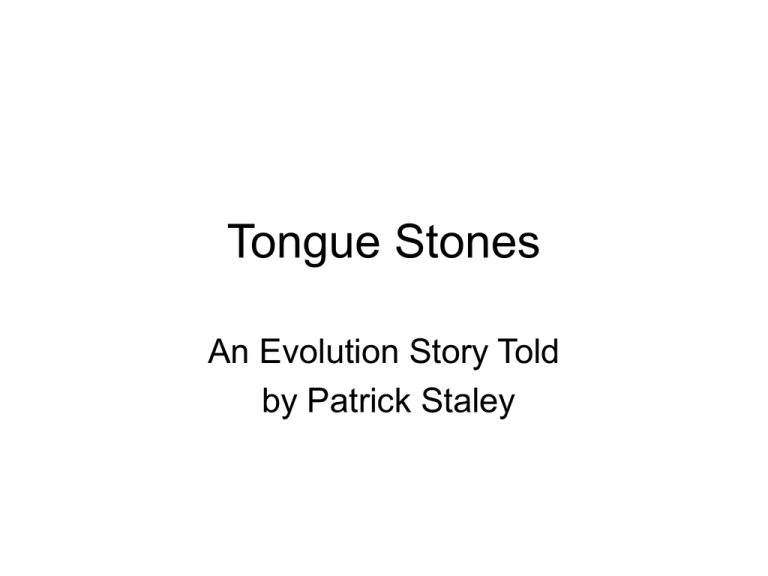
Tongue Stones An Evolution Story Told by Patrick Staley Presentation Outline • Legend to Science • Why Use Tongue Stones to Study Evolution • Parts and Features • Environment • Specific Evolutionary Lines Magical Properties • Counter-Act Toxins • Snake Bite • Dip in Wine Folklore • Eerily well-polished when dug up • Petrified tongues of serpents, a creature associated with the devil. • Medieval practice to dip a tonguestone in a glass of wine. Japanese Legend • Thumbnails of Tengu Man, a mythical mountain goblin with a Pinnochio-like long nose. QuickTime™ and a decompressor are needed to see this picture. QuickTime™ and a decompressor are needed to see this picture. More Legends • Pliny the Elder (AD 23-79), a great Roman naturalist, believed that they fell from the sky during lunar eclipses. QuickTime™ and a decompressor are needed to see this picture. Saint Paul on Malta • • • • Many tongue stones on Malta Saint Paul shipwrecked on Malta in AD60. Saint Paul was bitten by a snake. Turned the tongues of serpents into stone. QuickTime™ and a decompressor are needed to see this picture. Nicholas Steno • In 1666 fishermen caught a giant shark. • The local duke ordered that this curiosity be sent to Ncholas Steno. • Steno is an anatomist. • Steno dissected the shark. • The shark teeth resembled tongue stones. • Paleontology is Born. Steno’s Shark Head Drawing QuickT i me™ and a decom pressor are needed to see this picture. In 1666 Who Thought • Living matter could be turned to stone • Encased in solid rock • Rocks well above sea level • Marine organisms on dry land Abundance of Sharks’ Teeth Fossils? • • • • Soft Tissue vs. Bone Getting Buried Time (400 million years) Opportunity (35,000 teeth per shark) Teeth per Shark • Sharks continually shed their teeth, and some can shed as many as 35,000 teeth in a lifetime. Shark Dentition • Embedded in Flesh • Constant Replacement • Files and Rows of Teeth Parts of a Shark’s Tooth • • • • • • Root Crown Dental Band Cusplets Serrations Striations Other Features • • • • • • Nutrient Grove Nutrient Foramen Longitudinal Ridges Crown Tip Crown Notch Crown Shoulder Sides of a Shark’s Tooth • • • • Lingual Labial Mesial Distal Dentition by Location • • • • • • Upper or Lower Anterior Lateral Posterior Intermediate Symphseal Cenozoic Evolution of the Large Sharks • Climatic Context • Geographic Context Cenozoic Global Temperature Polar Ice Earth Global Geography • Cretaceous • Eocene • Recurring Ice Ages Great White Line • • • • Carcharodon carcharias Isurus hastalis Isurus planus Isurus desori Carcharocles megalodon • • • • • Cretolamna appendiculata Odotus obliquus Carcharocles auriculatus Carcharocles angustidens Carcharocles megalodon megalodon intermediates • Odotus aksuaticus • Odotus chubutensis megalodon side branches • Paleocarcharodon orientalis • Carcharocles sokolovi • Parodotus benedeni
